To help Aboriginal and Torres Strait Islander corporations understand what Data Sovereignty means and why it matters...
The Shooting Stars program empowers Aboriginal and Torres Strait Islander young women by supporting their education, confidence, and cultural identity.
To support Aboriginal girls and young women increase school attendance and engagement, and strengthen their confidence, cultural identity, well-being and positive relationships.
Perth, WA, Whadjuk Noongar Boodja Country
Western Australia and South Australia
Youth; education
- Program
- Unincorporated
Most recent update – July 2025.
About
The Shooting Stars educational engagement program is a community-driven initiative designed to engage Aboriginal and Torres Strait Islander young women and girls in schools. Through the program, Aboriginal and Torres Strait Islander women are supported to build their confidence, cultural identity, and overall wellbeing, and grow positive attitudes towards education. Shooting Stars officially commenced in 2015 following a successful pilot program at Halls Creek District High School, in the east Kimberley region of Western Australia.1 Shooting Stars, Annual Report 2023, [link]. Now, they work across twenty-two schools in regional, remote, and metropolitan areas in Western Australia and South Australia. The program is guided by core values of respect, integrity, heart, and the mantra “we strive together, we rise together”.2Rose Whitau, and Helen Ockerby, “Yarning with the Stars Project: An Indigenous evaluation protocol for a sport for development and peace program,” Journal of Sport for Development 7, no. 13 (2019): 48, [link].
Shooting Stars is steered by Glass Jar Australia, a registered charity that plays an important role in guiding and setting the strategic direction of Shooting Stars. At a strategic level, the Glass Jar board ensures that Shooting Stars is tailored to meet the unique needs and aspirations of the community it serves. Like Shooting Stars, Glass Jar Australia prioritises First Nations representation. The Glass Jar board comprises 95% Aboriginal and Torres Strait Islander directors and has been chaired by a First Nations leader since its inception.
The program was established to empower Aboriginal and Torres Strait Islander students by supporting their educational journeys. Data from schools in remote Australia underscores the importance of this targeted support for young women. In 2022, the high school retention rate for non-Indigenous women in Western Australia (years 7 – 12) was 84.2%, compared to 47.4% for Aboriginal and Torres Strait Islander women.3Shooting Stars, “Our Story,” accessed January 2025, [link]. This disparity highlights the important role of Shooting Stars in creating pathways that support and celebrate the potential of Aboriginal and Torres Strait Islander women and girls, empowering them to graduate and succeed in their education.
Their impact has already been significant. More than 1,200 girls and young women across the program’s twenty-two schools have seen improved attendance rates and a more positive attitude towards school and education.4Shooting Stars, “Our Impact,” accessed January 2025, [link]. The program sets a minimum attendance target of 80%, with the goal of increasing this to over 90%.5Shooting Stars, “Our Impact,” accessed January 2025, [link]. Participants’ school attendance is tracked weekly and summarised at the end of every term. Program coordinators review this data regularly to highlight improvements that have occurred, and to identify opportunities to provide additional support to participants who may need it.
Shooting Stars aim for four key outcomes:
- Program participants maintain or improve their school attendance.
- Program participants maintain or improve their positive attitude toward education, health and wellbeing, and their future.
- Program participants are empowered, as evidenced by an increase in the number of Aboriginal women gainfully employed or pursuing higher education (e.g., growing the number of young women completing Year 12 at each site and increasing Glass Jar Australia’s Aboriginal staff rate to 100%).
- The program is embedded within communities, with engagement from families, entire communities, local service providers, and schools.6Rose Whitau, and Helen Ockerby, “Yarning with the Stars Project: An Indigenous evaluation protocol for a sport for development and peace program,” Journal of Sport for Development 7, no. 13 (2019): 49, [link].
Holistic approach
Shooting Stars’ approach is holistic and driven by the communities where they operate. Staff work closely with participants to build their capacity and provide the resources necessary for informed decision-making, self-determination, and empowerment. This collaborative effort enables participants to reach their full potential. The program, delivered in host schools, combines advocacy, support, engaging activities, incentives, and health and well-being sessions, all designed to boost participants’ self-confidence, strengthen cultural identity and promote overall health and well-being.
Shooting Stars only operates in communities where they are invited and needed. In some cases, communities reach out to the program, prompting a collective effort with local schools or organisations to customise the program to that area. In other instances, Shooting Stars may initiate connections between communities to ensure that young women in a given region are not left out of these opportunities. Patience and community engagement are central to Shooting Stars’ best practice model. An example of this approach can be seen in Fitzroy Crossing. Although there was no Shooting Stars site initially, the program ran sport and recreation carnivals to get to know the community and build trust. Over time, as relationships developed, a formal site was established.
Shooting Stars prioritise inclusion and say ‘yes’ to working with any community that seeks support. They also focus on working with Aboriginal community-controlled organisations and promoting the vital work these groups do. This customised approach allows Shooting Stars to create meaningful change and ensure that every community’s unique needs are met.
Junior Leadership Camps
Shooting Stars holds Junior Leadership Camps, on Country, for students in years 5, 6, and 7. Participation in the camp is based on specific selection criteria related to attendance and behaviour. To be eligible for the camp, students must meet an attendance rate of at least 80% or show a 20% improvement in their existing attendance. Students also need to demonstrate alignment with the values of Shooting Stars, as well as the values of their school and community. This ensures that participants embody what it means to be a young leader in their communities.
Senior Leadership Camps
Senior Leadership Camps are held in Perth, providing a key pathways focus for the young women. The Perth metro location emphasises future opportunities, including further education, potential employment opportunities, and networking with relevant partners. Shooting Stars work closely with Netball WA and West Coast Fever. During these senior leadership camps, participants attend the Suncorp Super Netball League First Nations round and connect with professional female athletes. The camp experience broadens their perspectives and provides an opportunity to engage with stakeholders and take home meaningful learnings.
The below video on the Shooting Stars 2022 Senior Leadership Camp provides a snapshot of how the program helps Aboriginal and Torres Strait Islander women develop into strong leaders.
Alumnae Hub
The Alumnae Hub is designed to support young women in year 12 as they transition from school to their post-school journey, whether that involves pursuing tertiary study, entering the workforce, or finding opportunities within their communities. The hub offers knowledge and resources to help young women navigate the complexities of this life stage. This includes assistance with practical essentials, such as obtaining a driver’s licence, birth certificate, and tax file number. The Alumnae Hub helps young women navigate the challenges of balancing priorities, managing time, and dealing with stress. It also takes into account the cultural obligations that young First Nations women must consider as they move forward.
From an organisational perspective, the hub supports meaningful connections between Shooting Stars’ partners and young women, ensuring these relationships are built in a safe and supportive environment.
Shooting Stars is partnering with a training organisation to offer a seven-week program centred on what self-determination looks like for young women. Part of this is about recognising that self-determination can have different meanings on an individual and community level. For young people, the focus is on practical skills such as financial literacy, public speaking, and other areas that build confidence as they prepare to enter the workforce or continue their education.
Related topic:
Steering Committees
Central to the Shooting Stars program are the Steering Committees. The committees ensure that the perspectives of local Aboriginal and Torres Strait Islander communities are consistently integrated into the program’s operations and direction. Committees are site-based and customised to each location, and comprise community members, Shooting Stars staff, school representatives, and other relevant local stakeholders. Guardians of participants, such as parents or grandparents, also sit on the committees. The committees are diverse in age, cultural heritage, professional backgrounds, education, and life experiences, offering a broad range of perspectives and insights. Each committee is led by the Shooting Stars’ program coordinators and assistants who work in each community. Having Shooting Star staff guide the committees ensures consistency and alignment with the program’s overall values.15Helen Ockerby, Executive Officer, Glass Jar Australia – Shooting Stars, interviewed by Ana Maria Parada, Tahu Stanley and Ella Syme, Australian Indigenous Governance Institute, online, November 26, 2024.
Steering Committees serve a multifaceted role in the Shooting Stars program. They focus on finding solutions to the challenges faced by young people, and determining how Shooting Stars can best support them. Through regular meetings and yarning sessions, the committees identify common themes and key issues. These insights are then shared with the Glass Jar Australia board, ensuring they are informed and updated on what’s happening at the community level. Confidentiality is important, and certain information is kept confidential to protect the participants.
Committee meetings are held one to two times per school term across the twenty-two schools. This means there are often numerous meeting minutes and agendas. To streamline this information, common themes are identified, and the key findings are presented to the board in a structured report format. Shooting Stars has developed an innovative approach to reporting that captures this information effectively. There are three stages of reporting: general data, such as attendance; case studies that highlight participants’ journeys; and Yarning Circles, which are led by program coordinators and Shooting Stars staff.16 Helen Ockerby, Executive Officer, Glass Jar Australia – Shooting Stars, interviewed by Ana Maria Parada, Tahu Stanley and Ella Syme, Australian Indigenous Governance Institute, online, November 26, 2024. These Yarning Circles are a key part of the program’s governance, helping to shape the direction of the program within each community. Communities are encouraged to actively participate in these discussions, contributing to the ongoing development of the program.
Yarning Circles
Yarning Circles play a central role in the governance and development of the Shooting Stars program. The Yarning with the Stars project provides an opportunity for staff to engage directly with young women, listen to their experiences, and better understand how to support them effectively. Yarning is also integral to the program’s succession planning process for staff, ensuring that all staff members understand the fundamental elements of governance and can contribute to decision-making in a culturally respectful and inclusive way.
Yarning Circles typically take place one or two times per school term. During the Yarning Circles, participants come together to break down barriers, share their perspectives, and find solutions through meaningful collaboration. The conversations held during Yarning Circles are transcribed, and common themes are identified and analysed.20Helen Ockerby, Executive Officer, Glass Jar Australia – Shooting Stars, interviewed by Ana Maria Parada, Tahu Stanley and Ella Syme, Australian Indigenous Governance Institute, online, November 26, 2024. Like the Steering Committee meetings, these discussions help guide the direction of the program and ensure that the voices of young people are at the heart of Shooting Stars’ decision-making.
Yarning Circles in practice
A key outcome of Yarning with the Stars was the development of culture enrichment programs. Shooting Stars staff identified a desire for young women to connect to Country and culture. The result was a ten-week art project, called Art with the Stars, inspired by insights gathered during these circles. This project links local Aboriginal artists with Shooting Stars’ schools, providing young people with opportunities to connect to Country and culture through storytelling and art. The goal of this initiative is to continue the tradition of transferring cultural knowledge, preserving stories, and fostering relationships between young people and their communities.22 Helen Ockerby, Executive Officer, Glass Jar Australia – Shooting Stars, interviewed by Ana Maria Parada, Tahu Stanley and Ella Syme, Australian Indigenous Governance Institute, online, November 26, 2024.
Related topic:
Succession planning
At Shooting Stars, staff upskilling is encouraged. Staff members are supported to not only understand governance but are also equipped to implement feedback and respond to the distinct needs of each site. By providing ongoing training, staff are better positioned to support the outcomes from Yarning Circles and Steering Committee meetings, and can use the insights gathered to drive the program’s success. This commitment to professional development enables staff to stay connected with the community and effectively address emerging needs. Succession planning at Shooting Stars is a process that often occurs naturally. Aboriginal women from local communities are encouraged to join the staff team, becoming role models for younger participants. These women provide an important point of reference, particularly for young women in later high school, by demonstrating the potential career paths they could follow.27 Helen Ockerby, Executive Officer, Glass Jar Australia – Shooting Stars, interviewed by Ana Maria Parada, Tahu Stanley and Ella Syme, Australian Indigenous Governance Institute, online, November 26, 2024.
Shooting Stars also supports program participants who wish to continue their journey with the program after completing year 12. For those interested in working with the program, casual positions are sometimes offered to provide valuable work experience and to ensure that the role is a good fit. This approach also helps ease the transition from education to employment, offering a hands-on learning experience within a supportive environment.
In addition, Shooting Stars collaborates with new employees over twelve months to develop personalised professional development plans.28Helen Ockerby, Executive Officer, Glass Jar Australia – Shooting Stars, interviewed by Ana Maria Parada, Tahu Stanley and Ella Syme, Australian Indigenous Governance Institute, online, November 26, 2024. These plans are designed to help staff grow in confidence and competence within their roles. Every December, an all-staff workshop is held to ensure that all team members have access to learning opportunities.
Related topic:
Shooting Stars Way Practice Framework
The Shooting Stars Way Practice Framework, implemented in 2023, is built on trauma-informed, place-based, and strength-based approaches.32Shooting Stars, Annual Report 2023, [link]. Developed in collaboration with the Australian Childhood Foundation, as well as Shooting Stars participants, communities, and staff, this framework provides a structured, compassionate approach to supporting young women in their individual learning journeys.33 Government of Western Australia, “Implementing the National Principles for Child Safe Organisations. Case Study: Shooting Stars,” updated August 2023, [link]. It emphasises a person-centric approach that recognises each student’s unique path.
The five key concepts of the framework — Relationship Focused, Needs-based, Empowerment Oriented, Knowledge Informed, and Collaboration Centred — are represented by each point of a star.34Shooting Stars, Annual Report 2023, [link].
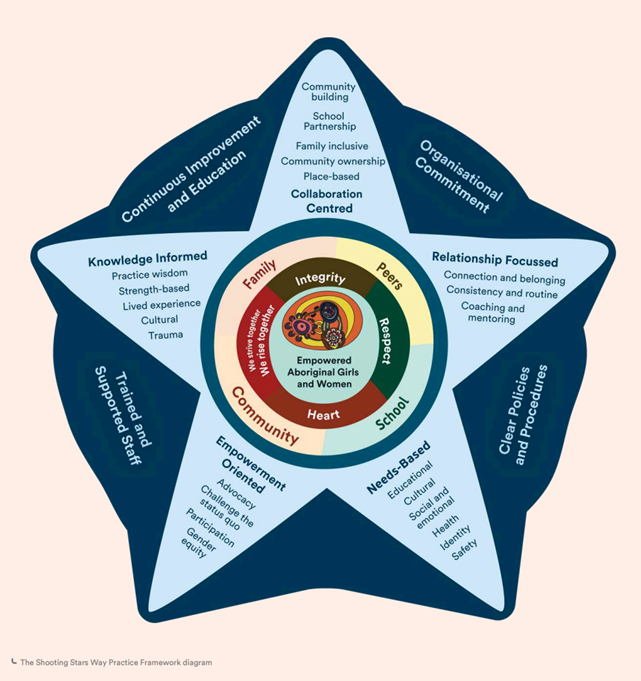
Diagram source: Shooting Stars, Annual Report 2023, [link]
The framework is not just a set of guidelines but acts as a code of conduct that is embedded throughout the program’s strategy, guiding the day-to-day operations, policies and decision-making processes.35Helen Ockerby, Executive Officer, Glass Jar Australia – Shooting Stars, interviewed by Ana Maria Parada, Tahu Stanley and Ella Syme, Australian Indigenous Governance Institute, online, November 26, 2024. It emphasises the importance of relationships and connection with key people in the lives of young women—whether it be family, peers, school, or community. These relationships are fundamental to the program’s success and are integral to everything Shooting Stars does.
Key to the framework is a commitment to staff support and wellbeing. Staff members are equipped with the tools, guidance, and opportunities for debriefs or professional supervision, ensuring that they can perform their roles with confidence and work in a way that aligns with the Shooting Stars approach—with compassion and love for community and culture. The framework also ensures that staff operate with a cultural lens in all aspects of their work. The Shooting Stars Way Framework also extends beyond internal practices and into partnerships and collaborations. The program ensures that its values and working criteria are clear to all stakeholders, including individuals, groups, and funding bodies. These partners are fully aware of and aligned with the Shooting Stars Way, creating a shared commitment to the program’s core principles.36Helen Ockerby, Executive Officer, Glass Jar Australia – Shooting Stars, interviewed by Ana Maria Parada, Tahu Stanley and Ella Syme, Australian Indigenous Governance Institute, online, November 26, 2024.
Place-based approach
Shooting Stars understands that cultural diversity, as well as the specific needs and priorities of different regions and communities, play a significant role in shaping the effectiveness of the program. The delivery of services is customised to each community, taking into account what is happening in the area and adapting the approach to suit the local context. The involvement of local staff helps make this approach successful. These staff members are familiar with the priorities of their own communities and can provide on-the-ground information that helps inform and adapt program content.37Helen Ockerby, Executive Officer, Glass Jar Australia – Shooting Stars, interviewed by Ana Maria Parada, Tahu Stanley and Ella Syme, Australian Indigenous Governance Institute, online, November 26, 2024.
What this approach looks like in practice is dependent on the community. For example, if there is in-house conflict or feuding in a community, local staff can recognise this issue and bring it back to the program space, ensuring that the content addresses these concerns. This could mean focusing on conflict resolution techniques for several weeks to help young women navigate these challenges. Similarly, if there’s been an increase in high-risk behaviour, the program may shift to focus on positive decision-making. This adaptability ensures the program addresses each community’s immediate needs while remaining culturally safe and sensitive.
Local staff also play a role in ensuring cultural elements remain central to program delivery. This includes involving local Elders, language groups, and cultural practices, such as dance, to enrich the experience and ensure that cultural safety is prioritised throughout.38Helen Ockerby, Executive Officer, Glass Jar Australia – Shooting Stars, interviewed by Ana Maria Parada, Tahu Stanley and Ella Syme, Australian Indigenous Governance Institute, online, November 26, 2024. This place-based, site-specific approach allows Shooting Stars to create spaces that are not only culturally safe for participants but also welcoming for the wider community.
References
Stay connected
Stay informed with AIGI news and updates.

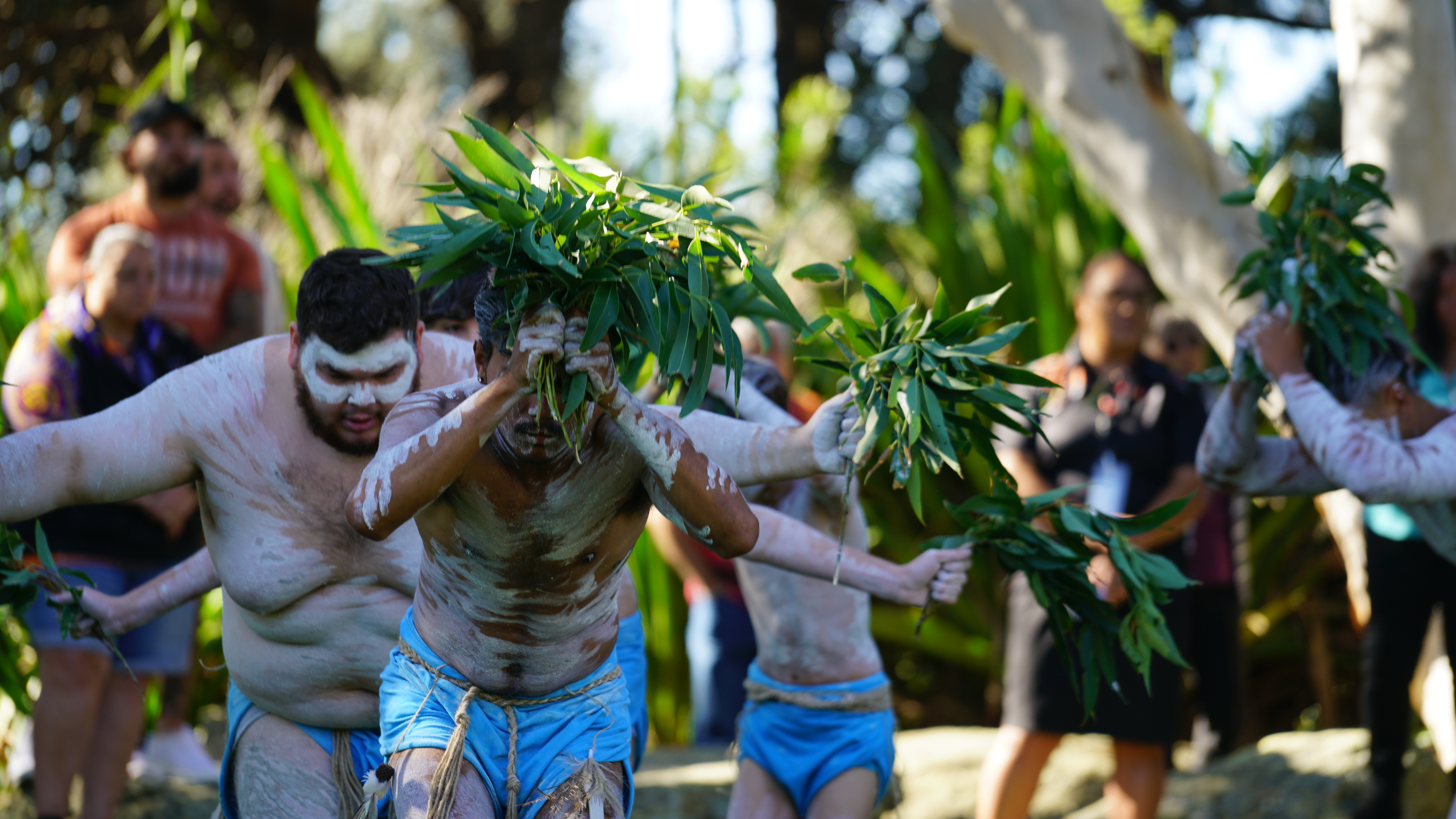
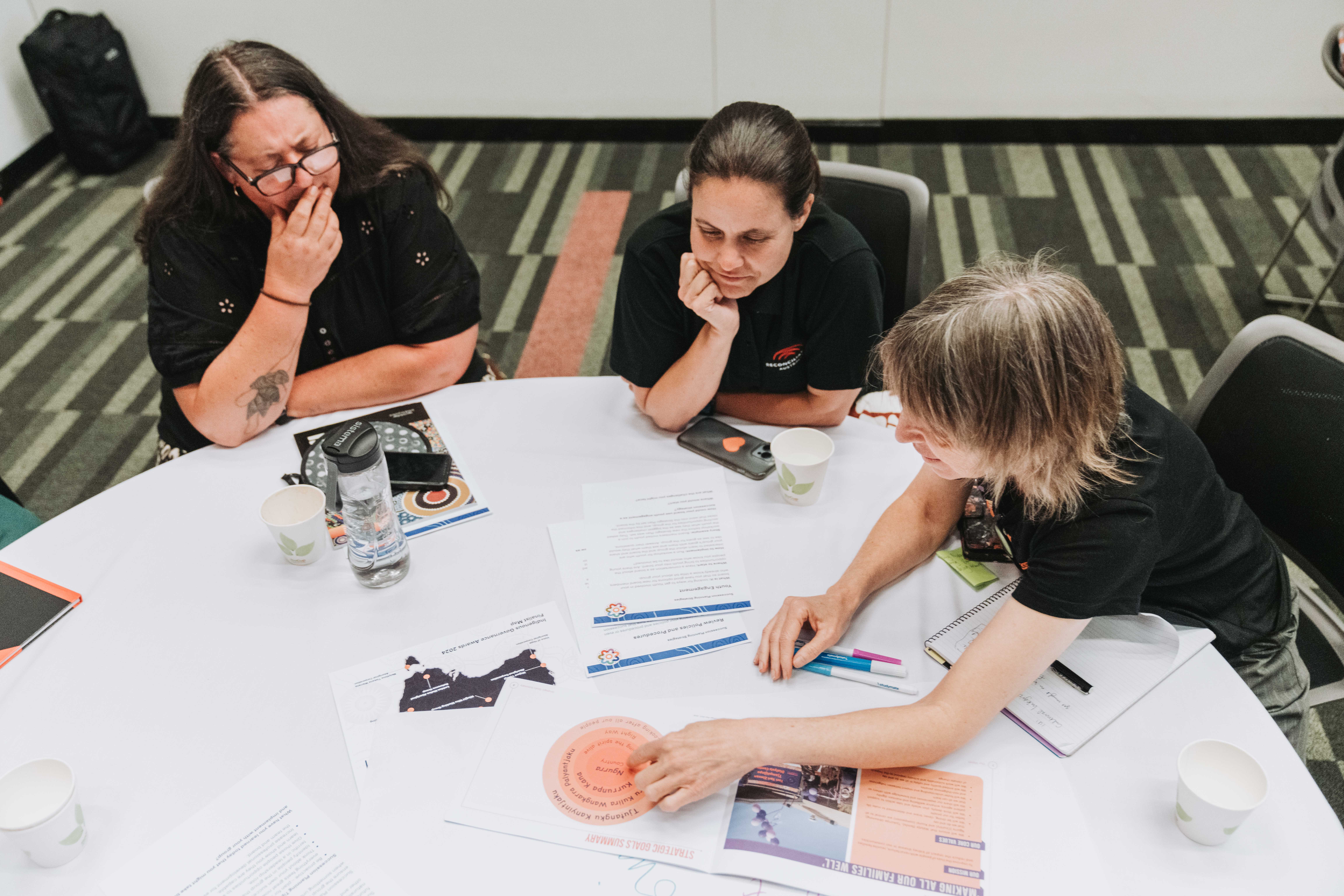
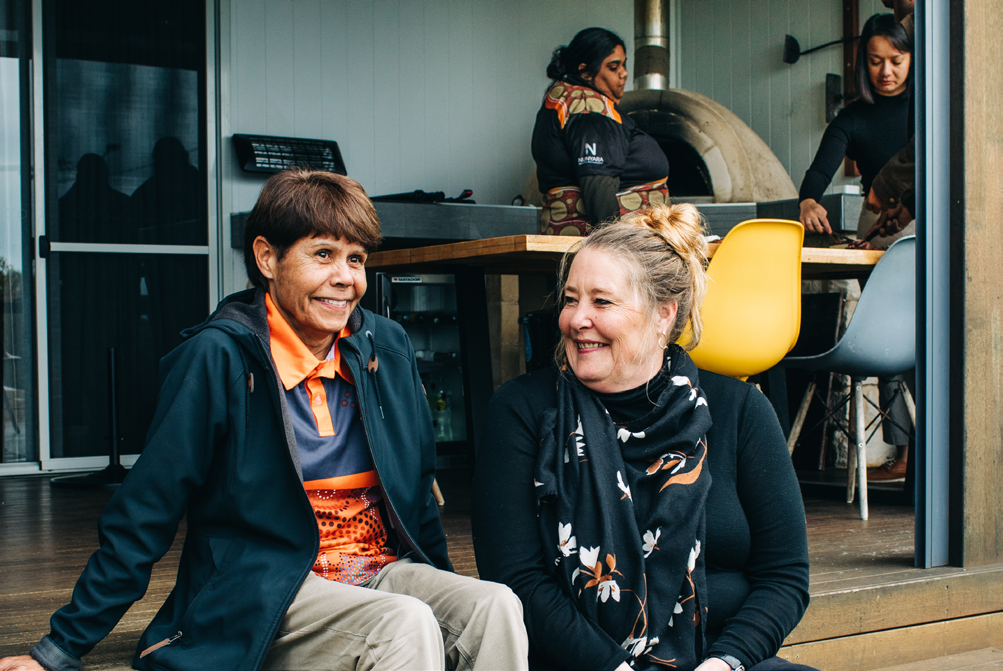
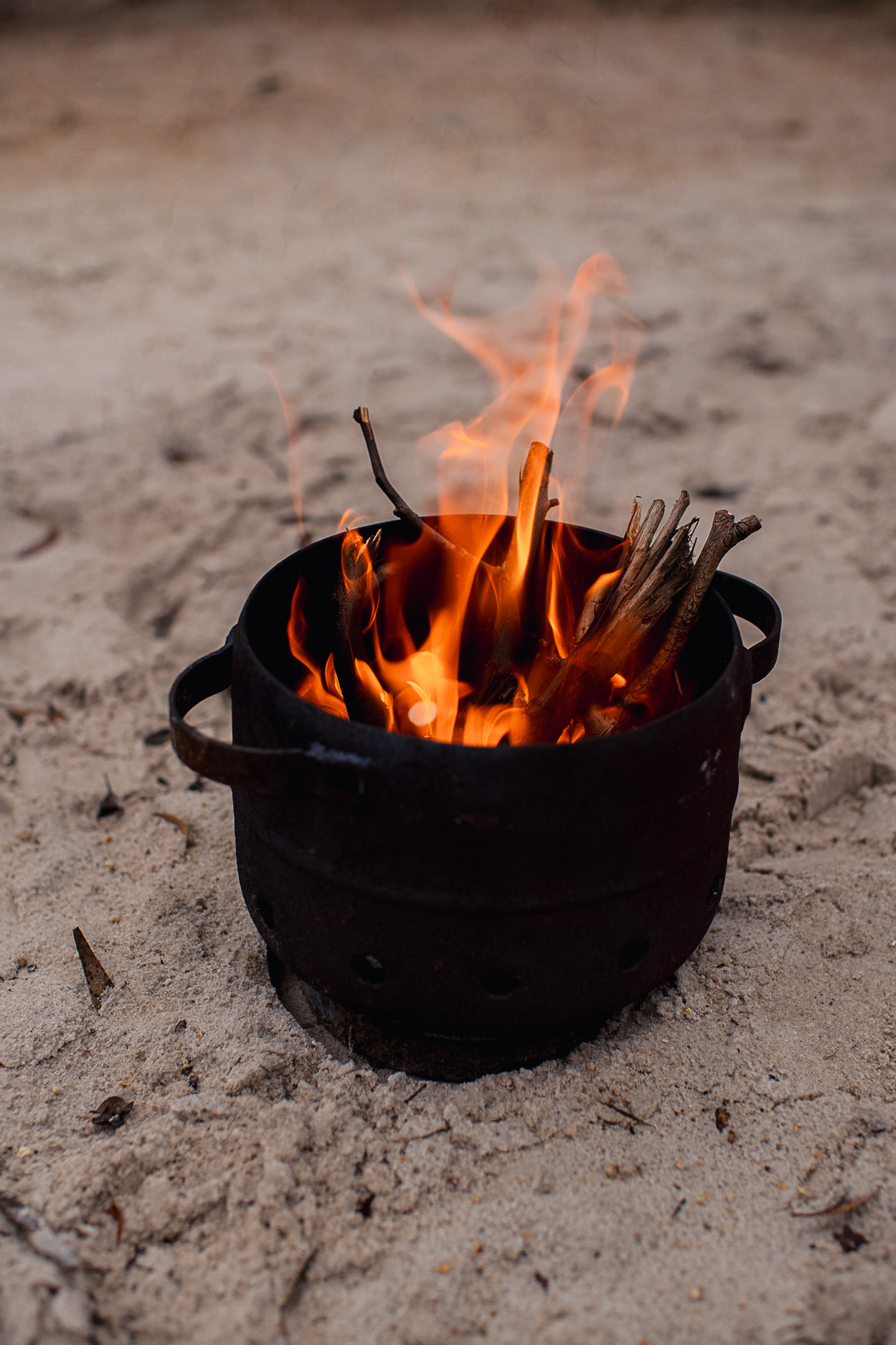
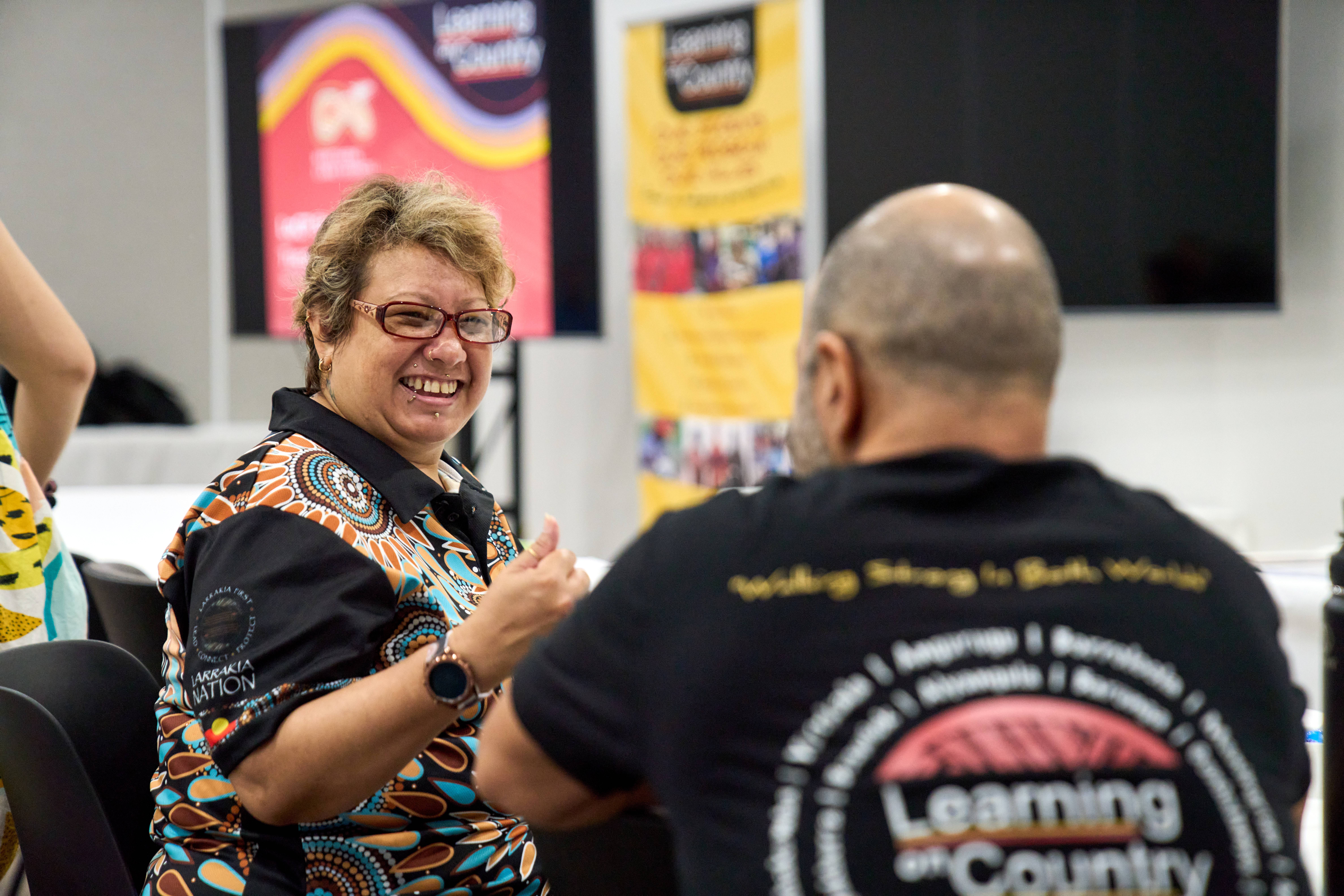
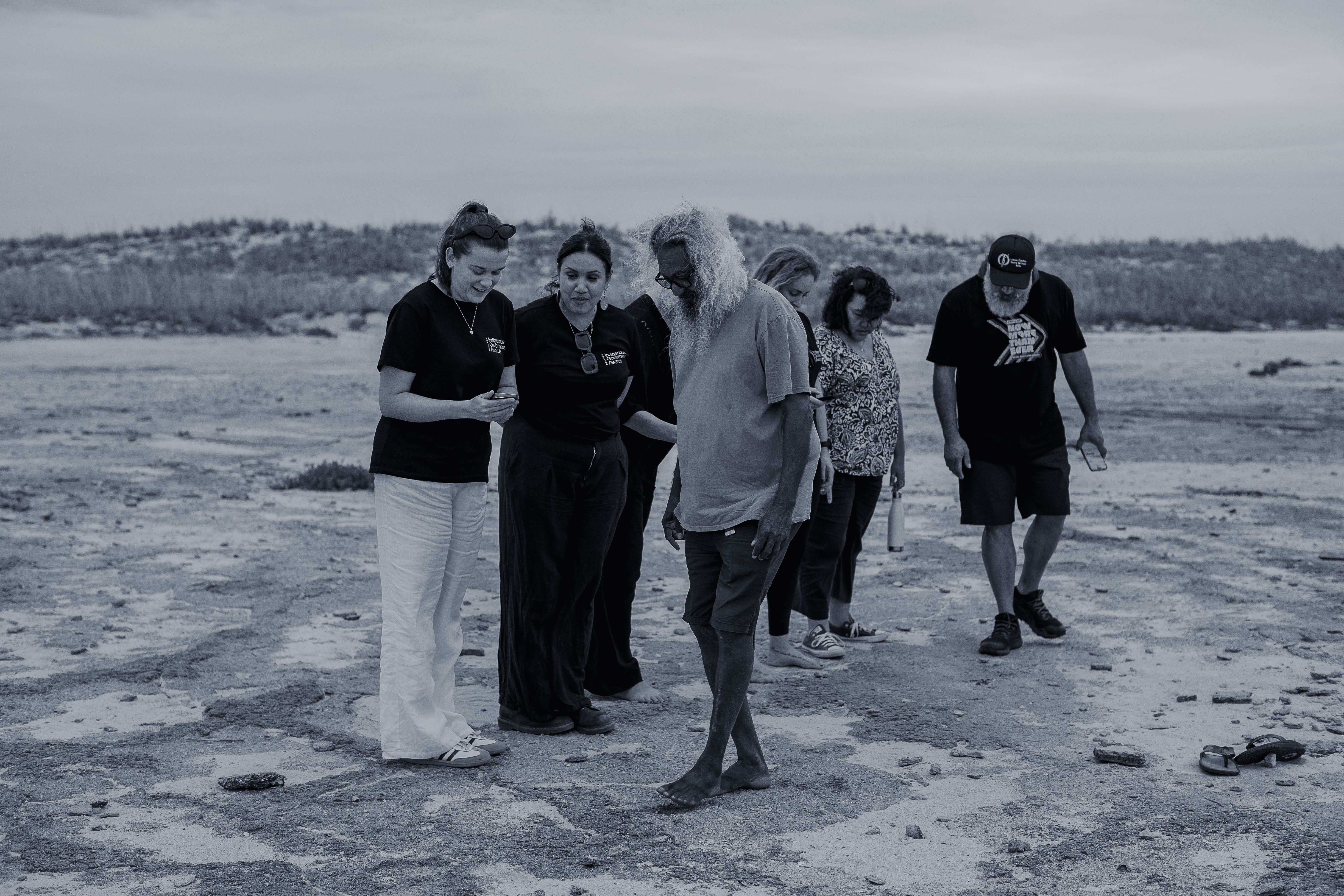

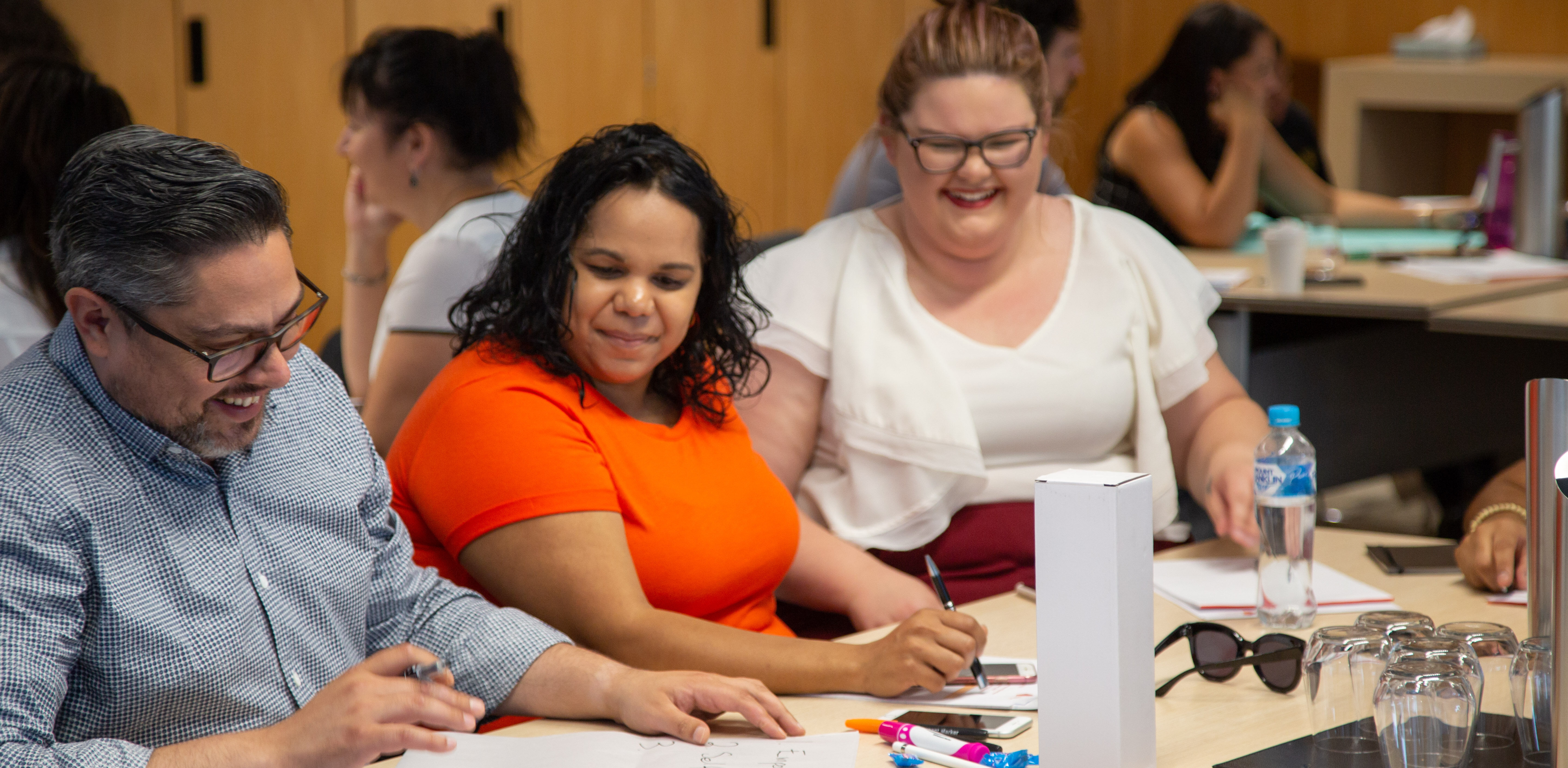



.png)



